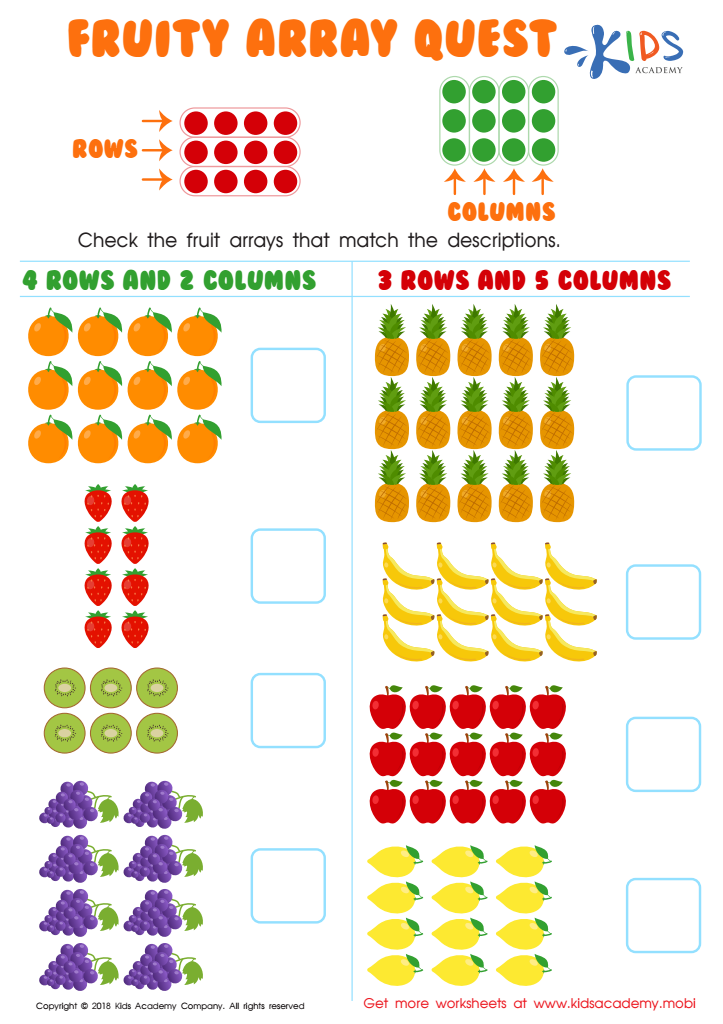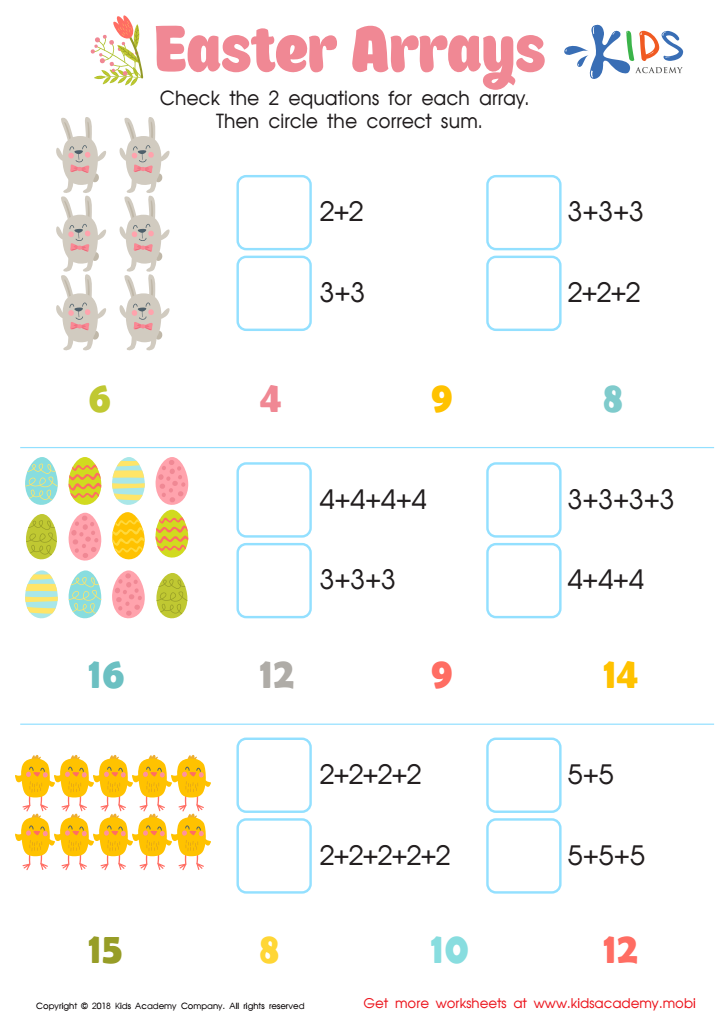Counting skills Arrays Worksheets for Ages 8-9
3 filtered results
-
From - To
Enhance your child's counting skills with our engaging Arrays Worksheets, designed specifically for ages 8-9. These interactive resources foster a deeper understanding of numbers through visual arrays, making counting fun and enjoyable. By practicing with these worksheets, children will develop essential math skills, including addition and multiplication concepts, while improving their critical thinking abilities. Each worksheet offers a variety of counting activities, ensuring a comprehensive learning experience. Whether at home or in the classroom, these worksheets are perfect for reinforcing counting proficiency. Encourage your child to explore the world of numbers with confidence and creativity using our expertly crafted resources!


Fruity Array Quest Worksheet


Easter Arrays Worksheet


Colorful Arrays Bingo Worksheet
Counting skills, particularly through the lens of arrays, are vital for children aged 8-9 as they lay the foundational cognitive processes for more complex mathematical concepts. At this age, students transition from concrete counting to understanding the relationships between numbers and quantities. Arrays, which are structured arrangements of objects usually in rows and columns, help children visualize multiplication and division, facilitating intuitive grasp of these operations.
For parents and teachers, fostering counting skills through arrays not only bolsters mathematical fluency but also enhances problem-solving abilities. Children begin to see patterns and relationships between numbers, which cultivates critical thinking. Furthermore, arrays provide a hands-on approach to learning that can make abstract concepts more tangible. This visual representation helps to eliminate math anxiety and promotes confidence in young learners.
Additionally, proficiency in counting and understanding arrays supports success in higher-level math and other STEM (Science, Technology, Engineering, Mathematics) disciplines, essential in today's technologically driven world. Overall, investing time into enhancing counting skills through arrays equips children with essential tools, promoting lifelong learning and preparing them for future academic successes. Parents and teachers play a crucial role in encouraging this foundational skill, ultimately impacting students' educational journey.
 Assign to My Students
Assign to My Students
















